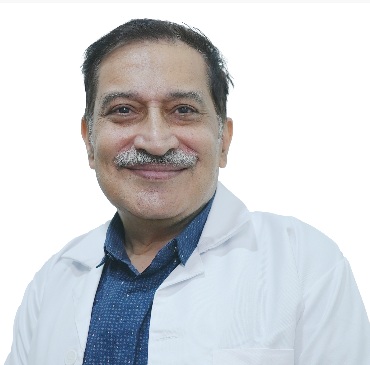Cervical Spine Surgery - Procedure, Side Effects and Recovery

Treatment Duration
30 Minutes
------ To ------45 Minutes
Treatment Cost
₹ 3,00,000
------ To ------₹ 4,00,000

More than 90% of people with pain from the cervical disc can relieve the pain with simple, traditional treatments. However, if symptoms persist even after other treatments and you develop weakness in your arms or legs, you may require cervical disc surgery. Cervical disc surgery involves replacing the diseased cervical disc with an artificial disc.
| Procedure Name | Cervical Disc Surgery |
| Alternative Name | Herniated Disc Surgery |
| Conditions Treated |
Neck pain, Neck stiffness, Headache,Weakness of your shoulders, arms, hands, or legs, Numbness or "pins and needles" feeling in your arms |
| Benefits of Surgery | Disc replacement improves function after surgery, Motion preservation reduces stress on the spine, Minimally invasive surgery, Faster Recovery |
| Treated By | Orthopaedic Spine Surgeon |
You can check Cervical Disc Surgery Cost here.
Anatomy and Physiology
- The cervical spine is a compound structure of discs, bones, muscles, ligaments, tendons, and nerves.
- It comprises seven bones, called cervical vertebrae, stacked on top of each other to form your neck.
- There are cushions between the cervical vertebrae, known as cervical discs.
- It absorbs the shock and allows your neck to move freely.
- The cervical spine also forms a protective tunnel for the upper part of your spinal cord to pass through.
- The upper part of the spinal cord contains spinal nerves that supply movement and sensation to your upper body and both the upper limbs
- When the space between your vertebrae becomes narrow, a part of your vertebrae or cervical disc presses on the spinal cord or nerves, resulting in pain, weakness, or numbness.
Expert Doctors (10)
NABH Accredited Hospitals (10)


Why is Cervical Disc Surgery Done?
The exact causes of a herniated cervical disc can be hard to figure out. It often develops slowly with no clear reason. However, the most common causes include:
- Ageing
- Genetics
- Sudden movements
- A sudden strain on the disc
- Degenerative conditions, such as arthritis
- Sudden trauma
- Occupation related injuries
The symptoms of cervical disk degeneration include:-
- Neck pain
- Headache
- Weakness in arms, hands, legs, or shoulders
- Neck stiffness
- Numbness, tingling, or pain in shoulders or arms that go down to fingers
How is Cervical Disc Surgery performed?
Some common types of cervical disc surgery include:
- Anterior Cervical Discectomy and Spine Fusion (ACDF): The disc is removed through one small incision in front of the neck. The surgeon then inserts a graft to fuse the adjacent vertebrae above and below the disc.
- Cervical Artificial Disc Replacement: In this procedure, the affected disc is removed through a small incision in the front of the neck. The surgeon then implants an artificial disc in the disc space between the adjacent vertebrae.
- Posterior Cervical Discectomy: In this procedure, the surgeon makes a cut in the back of your neck to have access to the spine and remove the compression over the spinal cord.
The cervical disc replacement surgery procedure is as follows:
- Step 1: The surgeon makes a 1 to 2-inch incision on the side or front of your neck.
- Step 2: He/she carefully moves the neck structures to the side until they can see the cervical vertebrae and the cervical disc.
- Step 3: The damaged cervical disc is removed and replaced with an artificial disc in the empty disc space.
- Step 4: Then, the incision under the skin is closed with absorbable sutures, and the skin is closed with sutures to minimise scarring.
- Step 5: Lastly, the surgeon applies a small bandage or dressing over the incision.
What can you expect before and during the day of the surgery?
Before the surgery
- The doctor will advise you for a pre-anaesthetic check-up.
- He/she will ask you about your medical history. Make sure to inform them about the medications you take.
- You may be asked to stop taking blood thinners like aspirin.
- You need to quit smoking well before the surgery till some point after surgery.
- Your surgeon will inform you to stop eating and drinking after midnight on the night before the surgery.
- He/she will also briefly explain the procedure and the duration of the hospital stay. Plus, you will be informed about the estimated cost and insurance formalities.
- Lastly, your surgeon will inform you about the artificial disc to be implanted.
What Can You Expect on the Day of Surgery?
- On the day of the surgery, the medical team will ask you to sign the consent formalities before admitting you to the hospital.
- You will be asked to change into the hospital gown and remove all jewellery pieces from your body.
- Someone from the nursing staff will shave your hair in the neck area.
- Your last meal will be recorded, and you will be given an antibiotic with a sip of water.
- After your doctor monitors your heartbeat and breathing, you will be shifted to the OT room.
What Can You Expect During the Surgery?
- You will be made to relax on the operating table.
- The medical team will start an IV line in your arms for fluids, medicines, and anaesthesia before the procedure begins.
- Next, you will be given general anaesthesia to put you to sleep.
- The healthcare staff may insert a tube in your throat to protect your airway and expand your breathing.
- Someone from the team will monitor your blood pressure, heartbeat, and breathing throughout the procedure.
- The surgical site will then be cleaned with an antiseptic solution.
- Finally, the surgeon will make the necessary incision and perform the surgery.
- Once the surgery is done, the surgeon will close the incisions with sutures and cover the wound with a dressing.
What Can You Expect After the Surgery?
Recovery at Hospital
- The team will move you to the recovery room after the surgery.
- The healthcare team will observe you in the recovery area until your vitals stabilise and you recover from anaesthesia.
- The doctor may give a pain medication to relieve the pain.
- Intravenous fluid will be continued until you can take the fluids by mouth.
- The nursing staff will check your dressing and help you get out of the bed.
- Your doctor will also ask you to wear a support collar in the hospital.
- You may get a discharge from the hospital one or two days after the surgery.
- Before discharge, your doctor will provide you with home care and follow-up instructions.
Recovery at Home
- You may need to continue wearing neck support at home for a couple of days.
- Your doctor will recommend you start physical therapy after a few weeks.
- He/she will also provide instructions regarding bath and keeping the incision clean and dry.
- You will be able to return to normal activities by 4 to 6 weeks.
First Follow-Up Appointment
- The first follow-up appointment is typically scheduled two weeks after the cervical disc surgery. During this visit, the doctor removes your stitches. Plus, the surgical team will take an X-ray and examine your incision site to determine your recovery progress.
- Your doctor may also give you further follow-up instructions and permit you to return to certain activities like driving.
Risks of Cervical Disc Surgery
While all surgeries carry some risk, cervical disc surgery is relatively safe. Some potential risks of the surgery include:
- Infection
- Nerve injury
- Displaced artificial disc
- Reaction to anaesthesia
- Failure to heal
When to Consult a Doctor?
You should consult your surgeon if you experience the following:
- Headache
- Fever
- Weakness or numbness
- Difficulty in swallowing
- Difficulty in breathing
- Bleeding or discharge from the incision site
- Redness or swelling around the incision site
- Pain that does not go with medication
- Voice change or hoarseness
Cost of the Surgery
The cost of Cervical Disc Surgery ranges from ₹3,00,000 to ₹4,00,000. The cost varies based on the following factors:
- Type of Cervical Disc Surgery
- Age of the patient
- The medical condition of the patient
- The type of hospital facility availed - individual room or shared.
|
Procedure Name |
Cost Value |
| Cervical Disc Surgery | ₹3,00,000 to ₹4,00,000 |
Frequently Asked Questions (FAQ)
What are some Myths and Facts about Cervical Disc Surgery?
- Myth: Cervical disc surgery can lead to neck stiffness and limits neck mobility.
Fact: It is a misconception that cervical disc surgery limits neck mobility. The surgery's goal is to relieve compression from the nerve and correct instability. If anything, it helps you relieve pain and stiffness and not increase it. - Myth: Cervical disc surgery leads to recurrent disc problems.
Fact: Cervical disc surgery does not alter the probabilities of disc problems at other levels. However, regular exercise can help prevent further spine problems. - Myth: Cervical disc surgery can cause paralysis.
Fact: Not true! In fact, delaying cervical disc surgery has more definite chances of causing paralysis.
Last Updated on: 15 November 2022
Author
HexaHealth Care Team
HexaHealth Care Team brings you medical content covering many important conditions, procedures falling under different medical specialities. The content published is thoroughly reviewed by our panel of qualified doctors for its accuracy and relevance.
Latest Health Articles























